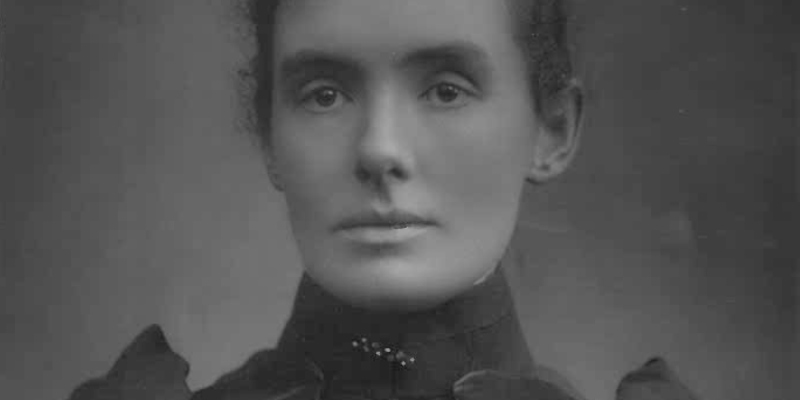
In the footsteps of Maye Russell Cooke: celebrating Women's History Month
This Women's History Month, we shed light on the life of our founder's wife, Maye Russell-Cooke, a champion for women's rights and suffrage. From her early activism to her enduring advocacy, her legacy highlights the principles upheld at Russell-Cooke today.
Margaret Mary (Maye) Russell Cooke, a campaigner for women's rights, was born at Hampton, Middlesex, on 4 September 1857, the eldest daughter in the family of ten children of Thomas Eustace Smith (1831-1903), ship owner and liberal MP for Tynemouth, and his wife, Martha Mary Dalrymple (1835-1919). She was brought up in the family home, Gosford House, Newcastle upon Tyne, and was educated at Orleans where she passed the public examination for French schoolmistresses.
Suffrage and political activism
From 1878 Maye was an active member of the National Society for Women's Suffrage and became a member of its executive committee. When the Society split in 1888, she joined the Central National Society for Women's Suffrage (which later became part of the National Union of Women's Suffrage Societies), becoming the Society's treasurer in 1896. In 1885 she published 'Women's Suffrage' and in 1889 contributed an article to the Nineteenth Century in response to the anti-suffragist appeal against women's suffrage. Involved in liberal politics, she was elected in 1888 as a member of the London School Board for Lambeth, advocating free education. She retired from the Board in 1891.
Marriage, suffrage and advocacy
On 19 September 1891 she married William Russell Cooke (1854-1903), solicitor and legal adviser to the Liberal Party, at Kensington parish church. They had two sons. As Mrs Russell Cooke she continued her suffrage activities and was also active in the Women's Emancipation Union. Having attended the International Council of Women in Washington, USA in 1888, she was one of those who, in 1897, advocated the creation of a national council of women to represent all the societies in which women took a part. In 1899 she opposed provisions which would have curtailed the role of women in London local government. Among the other causes which she took up was the provision of seating for women shop assistants, who were required to stand for long periods.
After the death of William Russell Cooke, she settled on the Isle of Wight where she became a co-opted member of the County Council's education committee. Following a long illness, she died at her home on 19 May 1914.
Maye's advocacy for equality sheds light on her husband's character and the enduring principles of the firm he established, which continue to flourish today.
Get in touch
Call us on +44 (0)20 3826 7550 or complete our enquiry form.